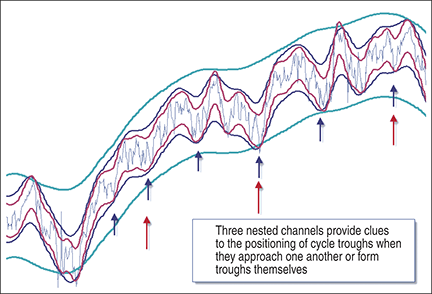In the 1970s, an American engineer named J.M. Hurst published a thesis about why financial markets move the way they do. His expounded theory was the result of many years of research, and it became known as Hurst’s cyclic theory. Hurst claimed a 90% success rate trading on the basis of his theory, and yet his work has remained largely undiscovered and often misunderstood.
An almost-forgotten theory
Hurst published two seminal works: The Profit Magic Of Stock Transaction Timing, followed a few years later by a workshop-style course that was called the Cyclitec Cycles Course (now available as JM Hurst’s Cycles Course).
Hurst published two seminal works: The Profit Magic Of Stock Transaction Timing, followed a few years later by a workshop-style course that was called the Cyclitec Cycles Course (now available as JM Hurst’s Cycles Course).
A number of enthusiastic advocates, prominent traders, and writers proclaim Hurst as the “father of cyclic analysis” and confirm the efficacy of the theory (including the late Brian Millard, who wrote several books about Hurst’s theory), but why isn’t it better known and more widely used by technical analysts? There are two possible reasons:
- First, Hurst’s cyclic theory is not easy. While it is beautiful and elegant in its essence, it is not a simple theory to understand or apply. The Cycles Course is more than 1,500 pages long, and most people take several months to work through it.
- Second, although the theory presented in both the Profit Magic book and the Cycles Course is the same, there is a vitally important distinction between the analysis processes presented in them. Hurst claimed his success on the
 basis of the process presented in the Cycles Course, whereas many people read the Profit Magic book and go no further, with the consequence they never discover the more effective process presented in the Cycles Course.
basis of the process presented in the Cycles Course, whereas many people read the Profit Magic book and go no further, with the consequence they never discover the more effective process presented in the Cycles Course.


No comments:
Post a Comment